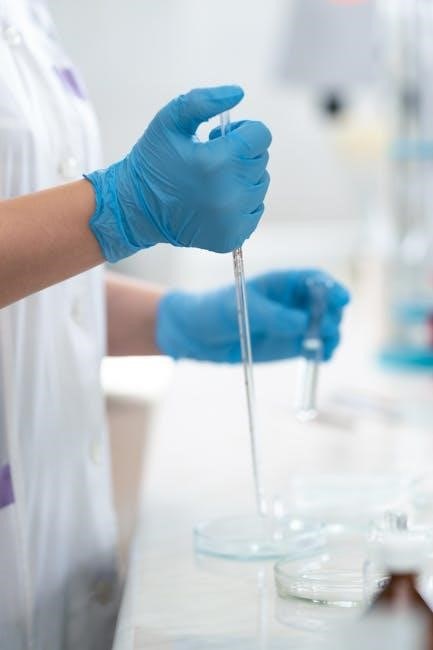
med tech study guide
Medical technology involves the use of advanced tools and techniques to conduct laboratory tests, aiding in disease diagnosis, treatment, and prevention. It plays a crucial role in modern healthcare.
1.1 What is Medical Technology?
Medical technology, also known as medical laboratory science, is the branch of medicine that focuses on the performance of laboratory tests and analyses to diagnose, treat, and prevent diseases. It involves the use of advanced tools, techniques, and instruments to examine biological samples such as blood, tissues, and bodily fluids. Medical technologists, or medtechs, are trained professionals who conduct these tests, analyze results, and provide critical data to healthcare providers. The field integrates scientific principles from chemistry, biology, and physics to develop innovative methods for improving patient care. From routine blood tests to complex molecular analyses, medical technology plays a vital role in modern healthcare, enabling accurate diagnoses and guiding therapeutic decisions. This section provides a foundational understanding of the field, essential for aspiring medical technologists preparing for their exams.
1.2 Importance of Medical Technology in Healthcare
Medical technology is indispensable in modern healthcare, enabling accurate diagnoses, monitoring treatments, and improving patient outcomes. By providing essential data, it helps healthcare providers make informed decisions, reducing errors and enhancing care quality. Advanced diagnostic tools, such as genetic testing and point-of-care devices, allow for early detection of diseases, improving prognosis and treatment effectiveness. Additionally, medical technology streamlines laboratory processes, increasing efficiency and reducing costs. It also supports public health initiatives by tracking disease trends and outbreaks. Overall, medical technology is a cornerstone of healthcare, driving innovation, saving lives, and improving global health outcomes. Understanding its significance is crucial for aspiring medical technologists preparing for their exams and contributing to this vital field.
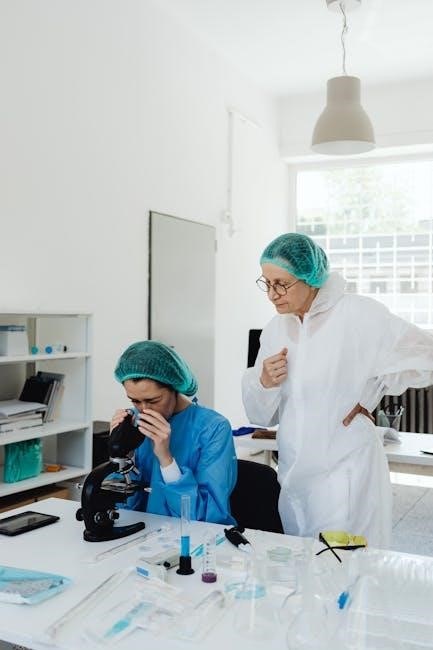
Key Principles of Medical Laboratory Science
Medical laboratory science relies on accuracy, precision, and safety to ensure reliable test results; These principles guide technicians in performing tests and maintaining quality standards effectively.
2.1 History of Medical Technology
The history of medical technology traces back to ancient civilizations, where early diagnostic tools and methods were developed. Significant advancements occurred in the 19th and 20th centuries, with the invention of microscopes, blood analyzers, and automated laboratory equipment. These innovations transformed medical diagnostics, enabling precise and efficient testing. The integration of digital and electronic technologies further revolutionized the field, leading to modern laboratory practices that emphasize accuracy and efficiency. Understanding this historical progression is essential for appreciating the role of medical technology in contemporary healthcare systems. By studying these developments, aspiring medical technologists gain insights into how past innovations continue to shape current practices and future advancements in the field.
2.2 Basic Laboratory Techniques and Safety Protocols
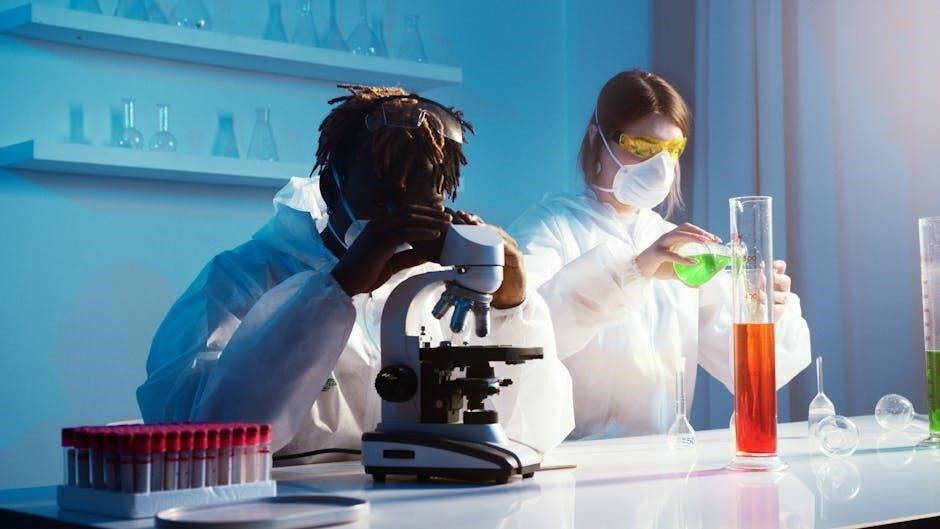
Basic laboratory techniques are foundational to medical technology, ensuring accurate and reliable test results. These include proper sample collection, handling, and preparation, as well as the use of precision instruments. Safety protocols are critical to protect both the technician and the patient from potential hazards. Personal protective equipment (PPE), such as gloves and lab coats, is essential to prevent exposure to biohazardous materials. Additionally, proper sterilization and waste disposal methods must be followed to maintain a safe working environment. Understanding these techniques and protocols is vital for minimizing errors and ensuring compliance with regulatory standards. By mastering these fundamentals, medical technologists can perform their duties effectively while safeguarding themselves and others from potential risks.

Structure of the Medical Technologist Exam
The exam consists of 200-230 multiple-choice questions, covering key areas like Clinical Chemistry, Hematology, and General Laboratory practices. Candidates are typically allowed 3-4 hours to complete it.
3.1 Distribution of Questions Across Key Areas
The Medical Technologist exam is divided into several key areas, each contributing a specific percentage of questions. General Laboratory practices account for approximately 12% of the questions, while Clinical Chemistry makes up around 19%. Hematology and Blood Banking collectively contribute about 13%, and Microbiology and Immunology cover 16%. Urinalysis and Molecular Diagnostics each account for smaller percentages, ensuring a well-rounded assessment of knowledge. Quality Assurance and Safety Protocols are also included, reflecting their importance in laboratory settings. Understanding this distribution helps candidates focus their study efforts on the most heavily weighted topics, ensuring they are well-prepared for the exam.
3.2 Types of Questions and Testing Format
The Medical Technologist exam primarily features multiple-choice questions (MCQs), with each question offering four possible answers and only one correct response. These questions are designed to assess both theoretical knowledge and practical application skills. Additionally, some questions may require mathematical calculations, testing the ability to solve problems using laboratory formulas. The exam format ensures a comprehensive evaluation of a candidate’s understanding of medical technology principles and procedures. The structured format helps candidates navigate the test efficiently, while the variety of question types ensures a thorough assessment of their competencies. Proper preparation for these question types is essential for achieving success on the exam.
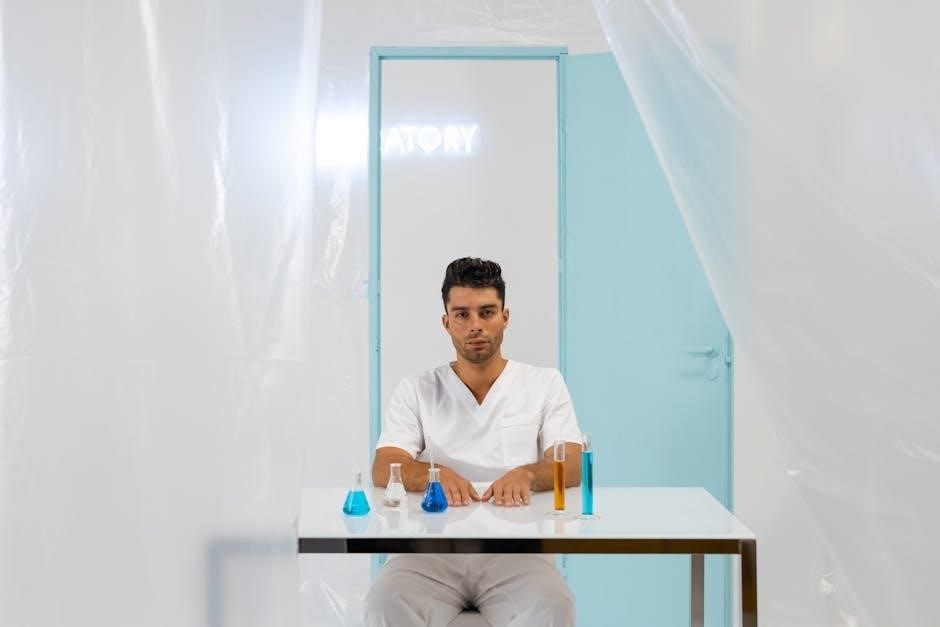
Major Areas of Study for the Exam
Key areas include Clinical Chemistry, Hematology, and Blood Banking, with questions distributed to test expertise in laboratory testing, analysis, and diagnostic procedures.
4.1 Clinical Chemistry
Clinical Chemistry focuses on the analysis of bodily fluids to diagnose and monitor diseases. It involves tests like blood glucose, cholesterol, and liver function. Key analytes include enzymes, hormones, and toxicology screens.
The section covers areas such as molecular diagnostics and therapeutic drug monitoring. Exam questions test understanding of chemical principles and quality control. Study resources include guides on analytical techniques and interpretation of results.
4.2 Hematology and Blood Banking
Hematology involves the study of blood components, including red and white blood cells, platelets, and hemoglobin. It diagnoses conditions like anemia, leukemia, and clotting disorders.
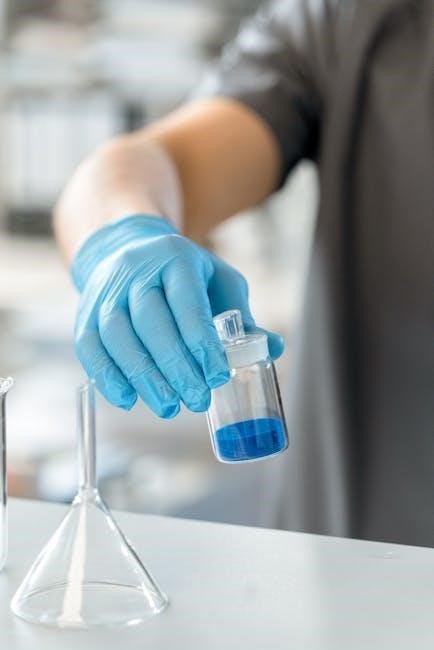
Blood Banking covers blood collection, typing, and cross-matching. It ensures safe transfusions and manages blood products. Exam questions focus on cell morphology and transfusion reactions.
Study guides emphasize understanding blood cell abnormalities and blood product storage. Practical knowledge of blood smear analysis and coagulation studies is essential for exam success.

Test Preparation and Study Strategies
Effective preparation involves creating a study plan, using practice exams, and focusing on weak areas. Utilize recommended guides and online resources for comprehensive review.
5.1 Recommended Study Resources and Guides
Several resources are available to aid in preparing for the medical technologist exam. The AMT Resource Library offers comprehensive tools, guides, and reference materials. Utilize study guides that provide in-depth summaries of key areas, ensuring a thorough understanding of clinical chemistry, hematology, and general laboratory practices. Flashcards and online platforms like Quizlet can help memorize important terms and concepts. Additionally, practice exams with multiple-choice questions simulate the actual test environment, allowing candidates to assess their readiness. Many guides include bibliographies and extensive answers for review. Personalized study plans, created with expert advice, can enhance preparation. These resources collectively ensure a well-rounded and effective study approach for aspiring medical technologists.
5.2 Effective Exam Preparation Techniques
Effective exam preparation requires a structured approach to ensure mastery of medical technology concepts. Create a detailed study plan, allocating time to each subject based on its weight in the exam. Engage in active learning by summarizing notes, teaching concepts to others, and applying knowledge through practice problems. Regularly review and practice with sample questions to familiarize yourself with the exam format. Focus on understanding fundamental principles rather than memorizing facts. Use flashcards to reinforce memory and address weak areas identified through practice exams. Maintain a consistent study schedule and ensure adequate rest to optimize cognitive function. Staying organized, managing time wisely during study sessions, and simulating exam conditions can significantly enhance performance.

